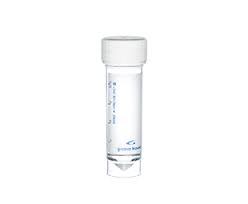Test Category: Specialist Biochemistry
Investigation Name:Nickel – Urine

Alias or Abbreviation:Urine Ni, urine nickel to creatinine ratio
Accreditation:UKAS ISO15189:2022 Accredited test: On scope
Intro:
Nickel is thought to be an essential element and plasma concentrations are narrowly maintained. Nickel salts can exist in several different oxidation states, Ni2+ being the species of environmental importance due to its wide use in industry ranging from the manufacture of coins, ceramics, paint pigments. Nickel Tetracarbonyl, a gas generated in the refining process of nickel alloy components is more toxic than inorganic nickel. Symptoms of acute toxicity may include headache, nausea, vomiting, mental confusion, and convulsions. Occupational exposure to nickel and its compounds, can cause severe cases of allergic dermatitis. Wearing of nickel-plated jewellery can also lead to dermatitis.Measurement of nickel in cases of contact sensitisation to the element is not helpful. Blood/plasma levels correlate well with airborne levels in the case of acute exposure or contact. However, on-going occupational exposure to nickel is most usefully monitored by urine analysis.
Pathology Laboratory:Trace Elements Laboratory
Requestable Seperately?Yes
Units:nmol/mmol creatinine
Minimum Sample Volume:2 mL urine
Expected Turnaround Time:7 working days. Urgent analysis where clinically indicated may be arranged directly with the laboratory.
Test Code:UNI
Sample Type:
Spot urine collected into a plain white -top universal container.Complex Reference Range:< 10 nmol/mmol creatinine
Referred to Another Laboratory?No
Storage Requirements:Store at 4 °C prior to dispatch
Posting Address / Requirements:Ambient temperature, First class post
Sandwell Health Campus
Pathology Department
Specialist Chemistry
Lyndon
B71 4HJ
NPEX / PDF Reporting Available:NPEX & PDF reporting available
Further information:We are a designated Supra-Regional Assay Service (SAS) Laboratory for Trace Elements. For occupational monitoring, a spot urine collected end of shift, end of working week is recommended.
Lead Contact Details:Dr Nicola Barlow, Consultant Clinical Scientist, SAS Director Trace Elements Laboratory
Email: nicola.barlow1@nhs.net
Email Address For Chasing Results:rwh-tr.ImmunologyLab@nhs.net
Methodology:Inductively coupled plasma mass spectrometry
Site Sample Tested:Sandwell Health Campus
Cost:Please email: bcpspathology.info@nhs.net for further details
Contact Number:01215075162

